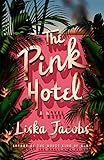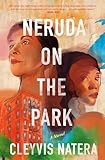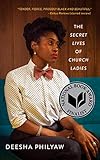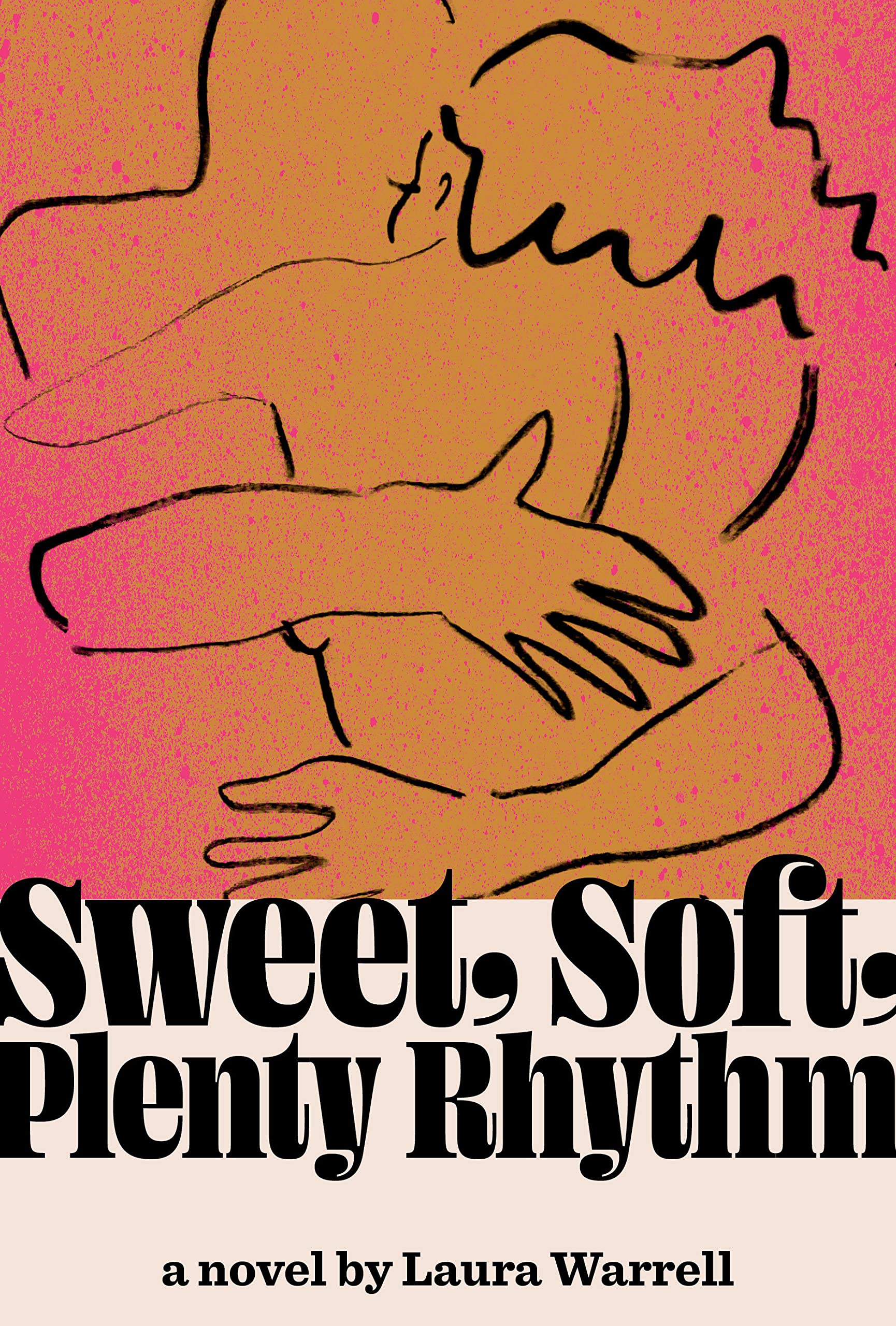Laura Warrell’s debut novel Sweet, Soft, Plenty Rhythm is a luxuriant dive into the world of jazz and love. Trumpet player Circus Palmer swims through a series of captivating women—including his daughter, Koko—without landing on the unconditional love he has for his instrument. Yet it is Circus’s women who comprise the joists and crossbeams of this engaging novel. I had the good fortune to catch up with Laura Warrell by email.
Martha Anne Toll: How did you first come to writing?
Laura Warrell: I never consciously decided to write. It came naturally. I began once I learned how to handle a pencil—I wrote my first book when I was six, although my mother claims I was five. Throughout my childhood, I wrote stories and film scripts so I could become a movie star and act in my own films. In college, it dawned on me: I like acting, but I love writing. Very little in had to change. I was already writing constantly, so now there was simply more intention and more desire to understand craft. I got two writing degrees, learned to read with a closer eye, and participated in classes, conferences, anything I could do to get better.
MAT: What kind of reader were you as a child? And now?
LW: I read to escape a somewhat challenging childhood and to imagine a life: loads of racy YA books, including Judy Blume, because no boys had crushes on me though I was crushing on them. In high school I read a lot of Jackie Collins—again, to imagine a much sexier life. In high school I discovered literary and classic fiction; that’s where Toni Morrison and Alice Walker came in. I attempted Tolstoy and Dostoevsky, found Vonnegut and Toni Cade Bambara.



 Nowadays, I like to keep up with all the amazing authors who are publishing now. I’ve met many of my contemporaries online and through other literary communities, and I want to read their books. I’ve just finished my friend Liska Jacobs’s The Pink Hotel, which was so fun. I’m looking forward to Daniel Nieh’s Take No Names and Cleyvis Natera’s Neruda on the Park. I can’t wait to see what Raven Leilani, Brit Bennett, Isle McElroy, and Dawnie Walton do next. I adored The Secret Life of Church Ladies by Deesha Philyaw. I’m also a fan of Danzy Senna and Steve Almond.
Nowadays, I like to keep up with all the amazing authors who are publishing now. I’ve met many of my contemporaries online and through other literary communities, and I want to read their books. I’ve just finished my friend Liska Jacobs’s The Pink Hotel, which was so fun. I’m looking forward to Daniel Nieh’s Take No Names and Cleyvis Natera’s Neruda on the Park. I can’t wait to see what Raven Leilani, Brit Bennett, Isle McElroy, and Dawnie Walton do next. I adored The Secret Life of Church Ladies by Deesha Philyaw. I’m also a fan of Danzy Senna and Steve Almond.
Toni Morrison is a favorite—she models the idea that you should write about who and what you want to read about, and stay true to it. I turn to the greats, like Munro or Bambara, when I need to get unstuck, and have lesser-known favorites like Jamie Quatro and Christine Schutt who are brilliant with language. I love international writers like Javier Marias and Marguerite Duras, and also turn to poets when I need to get into a rhythm: Giovanni, Neruda, and Sexton are go-tos.
MAT: What was your work life before the book and currently?
LW: For a while, I looked for “day jobs” to fit around writing. I worked in editing and public relations, and as a fact checker at a glossy magazine, which was fun but not nearly as glamorous as it sounds. After my divorce, I moved to Europe to write and have adventures, which I did! There, I taught English and realized how much I actually enjoy teaching—I liked moving around a classroom and engaging with other people. When I came back to the U.S., I got the necessary credentials to start teaching at the university level and have taught in English departments on both coasts. Few things give me more pleasure than convincing students to go for it.
MAT: How did you come to write Sweet, Soft, Plenty Rhythm?
LW: For longer than I care to remember, I was involved with a charismatic musician, the kind of fella women swoon over. Like Circus Palmer, this guy was impossible to pin down. I wondered why so many of us become entangled and enchanted by these slippery characters. We’ve seen these kinds of relationships explored from the perspective of the cad, because we want to know what drives him, but we rarely see these relationships from the points of view of the women who get their hearts broken, or are smarting from being cast aside. I wanted these women to have their say and a chance to right their romantic ships, though maybe not all of them will.
MAT: Music is also integral to your book. Can you talk about how you got it on the page?
LW: I need to dig beneath the surface and fully inhabit my characters before putting them on the page. With Circus, I didn’t simply need to know who was his favorite musician or how often he practiced; I needed to know what the horn felt like in his hands, how the horn worked, and how his mind came up with melodies. I read great books about jazz musicians, focusing on their creative processes and psychologies. I wanted to give Circus habits that reflected the precision and obsessiveness of the jazz greats, which is why he won’t touch his horn unless his hands are clean. It was crucial to convey how the music would sound and feel to Circus and Maggie. I wanted readers to “hear” the music and groove to it. My research included long luxurious quotes from the greats, people like Louis Armstrong and Coltrane. I also asked the musicians in my life, especially my students at Berklee College of Music. So much of what I observed in them shows up in the novel.
MAT: How did you conceive of the novel’s structure?
LW: Men like Circus walk in and out of other people’s lives, which I wanted the structure to mirror. Chapters can stand alone, and characters show up and disappear. I also like that the structure mirrors music, particularly jazz, wherein each player steps forward to take a solo and share her interpretation of the main melody, which, to extend the metaphor, is each woman’s love affair with Circus.
MAT: I felt the strongest relationship Circus had was to his trumpet. Could you elaborate?
LW: Most jazz musicians love their pianos, saxophones, and trumpets more than anyone or anything. Through their instruments, they form both a private and public relationship with what they love, music. Musicians are the luckiest because there’s a physical manifestation of their creative inspiration they can hold and touch. We joke about the faces musicians make when they’re playing since they often look like they’re having sex, but I imagine it as an erotic experience. Inevitably, I imagine, musicians form the closest relationship with their instruments because of the amount of time they must spend to master them. I loved the idea of Circus being capable of love, devotion, commitment, and sacrifice, but not willing or able to exercise that with people.
MAT: Musicians practice for thousands of hours before they can perform at the level that they do; what does your writing practice look like?
LW: I wish I had a consistent writing practice. As an adjunct professor, it’s hard to get into a rhythm. You’ve got mountains of papers to grade one day, then nothing the next. One semester, you’ve got classes Monday afternoons, the next you don’t. As soon as I form a habit, life shifts and I have to form a new one. So, I just make sure I sit down at some point and write. I’m a list maker. I write a schedule for myself each new week and make sure to pencil in at least two hours every day to write, at least five to six days a week. I do my best to stick to it.
MAT: What about your book’s path to publication?
LW: What a long, arduous path! It took two years, fifty agent queries, and countless rewrites before I landed my agent and a book deal. The end was fantastic—a six-way auction and a deal with Pantheon and the phenomenal Lisa Lucas. The beginning was rough, so what I can offer is the conviction that if we believe in our work, we mustn’t give up. I hope my journey can gives writers some hope. We have to keep doing the work—writing, revising, showing it to trusted readers, and revising again.
MAT: What’s next?
LW: I’m working on my next novel, also about the challenges of love and connection. Clearly, I’m obsessed with fractured relationships and the myriad ways we rob ourselves of what I consider the most meaningful experience in life, which is love.










